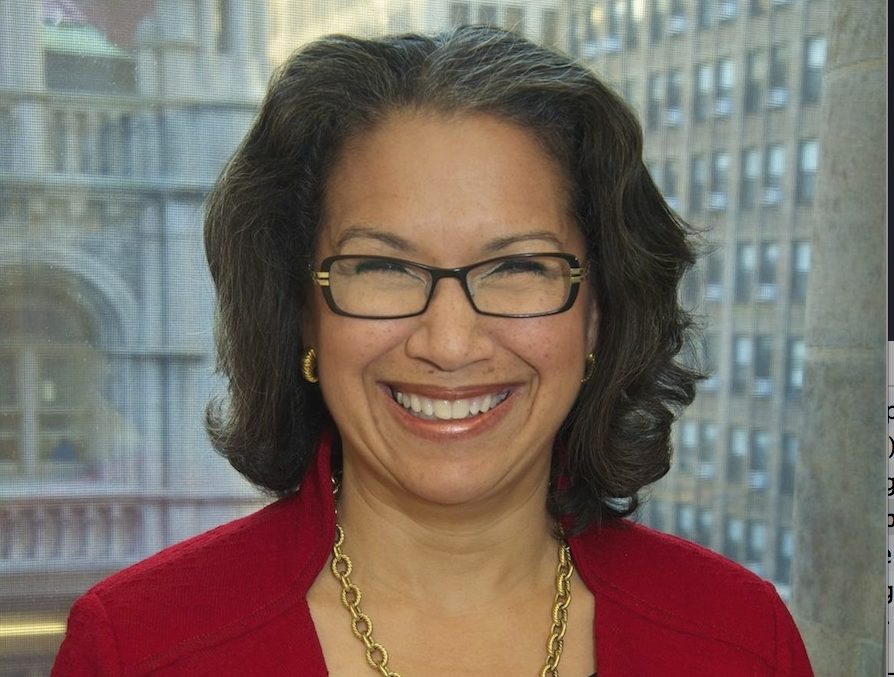[ad_1]

The recent law that requires mental health education in New York and Virginia schools sends one clear message—children need more than traditional academic skills to thrive in life. In addition to being exposed to mental health challenges, children living in poverty also face their own harsh realities. Thankfully, there are visionary leaders like Elsie McCabe Thompson who are committed to helping students overcome these barriers to learning.
Currently, McCabe Thompson is the president of The NYC Mission Society, one of the nation’s oldest social service organizations committed to breaking the cycle of poverty. She has a successful track record of tackling challenges, which affect the underserved and underestimated. In 1991, New York City Mayor David Dinkins enlisted her help in organizing the first mayoral delegation to South Africa to spotlight the need to maintain government sanctions until apartheid was dismantled and free elections were held. As the former president of the Museum for African Art, she transformed the financially struggling institution into a premier arts institution—raising nearly $93 million in individual, corporate, government, and foundation funding. Plus, she forged a partnership with the Nelson Mandela Foundation and secured the Museum as the exclusive provider of African Art educational kits to American schools located on 222 U.S. Department of Defense bases around the world.
McCabe Thompson shared with Black Enterprise the skills that should be prioritized and taught to students so they can succeed in the 21st century.
Black Enterprise: Based on your experiences, what are the biggest challenges facing education in 2018? How are you working to improve these issues?
Elsie McCabe Thompson: Students in 2018 are challenged by a loss of community, and far too many, an inability to access quality schools and a well-rounded, useful education. This is particularly true of students from low-income neighborhoods. It’s not disinvestment. Rather the challenge should be seen as a matter of strategic investment in our human capital.
At The Mission Society, we focus on education and job training. We have seen that small class sizes with experiential, hands-on learning makes a daily difference in academic success. We’re focused on making up the educational deficits that children living through the trauma of poverty experience by providing programs that wrap around existing public school curricula. Our Power Academy program addresses the educational achievement gap through after-school K-8 enrichment and in summer day camps. Through exciting hands-on activities, children concentrate on STEM learning and language arts, with special sensitivity to diverse cultures and new English speakers. We are proud that 84% of our Power Academy kids show improvement, often by two or more reading levels.
Our Learning to Work high school program works with more than 1,600 high school students who have either dropped out of high school previously or are unable to graduate because they have fallen too far behind. In this program, students are paired with an advocate counselor to help them overcome obstacles no young person should ever face alone. An example: a young woman in our Learning to Work program lost her mother to cancer while she was in her early teens. She was sent to live with her father in a new location. He was a complete stranger to her. Needless to say, her academic career took a nosedive and she acted out. She became pregnant and required bed rest, which threatened to derail her high school graduation, almost dooming herself and her child to a life of poverty. But our advocate counselor brought her classwork to the hospital and found special resources to help her keep on track for graduation. Mission Society staff arranged internships and fellowships for her so she would have income while studying. She earned her high school diploma and is now raising her child while attending college, studying early childhood education! It’s not an easy road—but, without support, it would have been impossible. The program boasts an 89% graduation rate, far, far above the citywide average.
With technology like artificial intelligence and robots set to impact jobs, skills, and wages, what knowledge should we prioritize for life and work in the 21st century?
Students in the 21st century unquestionably need to meet academic standards, but that is only part of what makes a good education. They need knowledge of acceptable professional behavior, and training to understand adult business standards of dressing, speaking, and relating to others. We want them to have a solid understanding of their rights and responsibilities in the civic structure—what does it mean to be part of a community and members of the larger society? Patrick Maggitti, Ph.D., Dean at the Villanova School of Business wrote in U.S. News & World Report that “creative problem-solving is the most important attribute for success after graduation… .” I wholeheartedly agree.
Students need music and art enrichment, which has been proven to improve academic success while improving soft skills like teamwork, self-confidence, and creative thinking. Too many public schools have eliminated music and art for budgetary reasons. Our GRIOT program teaches foundational music concepts along with instrumental music while reinforcing STEM skills. After one year, nearly three-quarters of our students demonstrate an overall improvement in their math scores and 100% can read music and play an instrument.
Students also need access to successful mentors, people in their immediate environments who model and can coach them in best practices. To me, “education” means teaching young people to see their possibilities instead of their limitations.
[ad_2]
Source link

